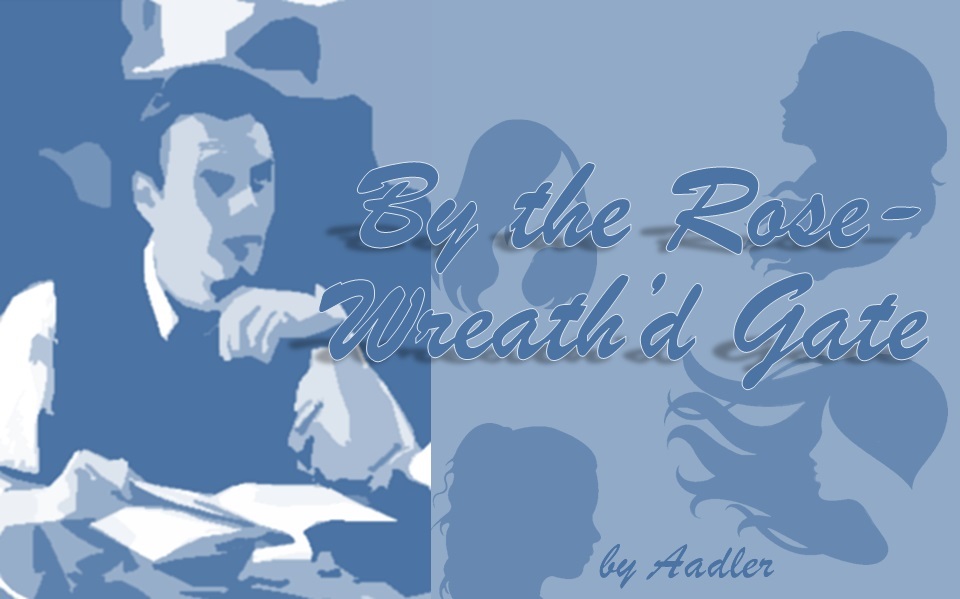“By the Rose-Wreath’d Gate”, End notes

[ Endnotes posted 06 May 2023 ]
Where did the idea for the story come from?
In the previous year’s Summer of Giles, I’d had an idea of Anya caught up in the British ritual of afternoon tea, and explaining to Giles how she had seen the practice evolve over more than a century, and reports of the various historical developments serving as a background for the growth of a closer relationship between the two. It was an idea that never fully came to fruition - and I did a different story that year - but I came back to the bare bones of it, from a different direction, in 2020’s Summer of Giles.
Is there any particular significance to the title?
As the quote at the end indicates, it’s a line from a poem - “Confessions” - by Robert Browning. In different stories I’ve used Browning before, and Tennyson, and a few other poets. It’s not just an affectation, though, I cited those lines because I remembered them, and remembered them because I like those poems.
What is the thing I like most about this story? the thing I like least, or about which I feel most doubtful?
Liked most: The characterizations of the different relationships, and the women who were part of them. (To a lesser extent, also, the ‘Giles’ of each separate stage of life.) It was challenging and interesting to find something distinctive about each of them, and to keep it consistent with the same people presented in canon. Deirdre, of course, was mostly speculation, but that speculation was itself built on the canon-picture of the five of them suggested in “the Dark Age” [S2-08]. All told, though, I was most pleased by what I found in Joyce: Extraordinary in her total, deliberate ordinariness. That, I believe, was an original thought on my part.
Liked least: It wasn’t actually something I disliked, but this story was introspection from beginning to end. Aside from the two exchanges of dialogue - Giles with ‘Mrs Gahagan’, and then with Anya - it was all memory and interior reflection. This isn’t bad, per se, but it certainly has its limits, and I wouldn’t want to use it too often.
Is there anything I think I could have done better, or might do differently if I had it to do over?
Playing off my earlier comment on the story being introspection-only, I probably would look to adding more to what was going on: some secondary story for background while this one played out, perhaps, or even some particular incident to emphasize the main story (or to use the main story to emphasize). Quite a bit of the time, these things come to me naturally - witness the bike-cop scene in “ That Thing You Do” as an example - but nothing occurred this time through.
Was there a different direction I might have wanted to take the story, and what would have been some of the advantages of the not-taken path?
One approach would have been to tell a story of a typical day of Giles being harried by his unsought responsibilities as new head of the Council, different things coming from different directions, with his musings on past relationships a way of distracting and pacing himself. Some of that type of thing can be seen in “ One Day Like This” by il_mio_capitano, a longer and much richer story than mine. I wasn’t aiming so high as that, but it could be attempted.
Any observations to add at the end?
Like many people, I enjoyed the (however temporary) couple of Giles and Anya shown in the “Tabula Rasa” episode [S6-08]. I’ve seen it explored elsewhere, and this was my own brief contribution. It’s been done better, and is almost always fun to see.